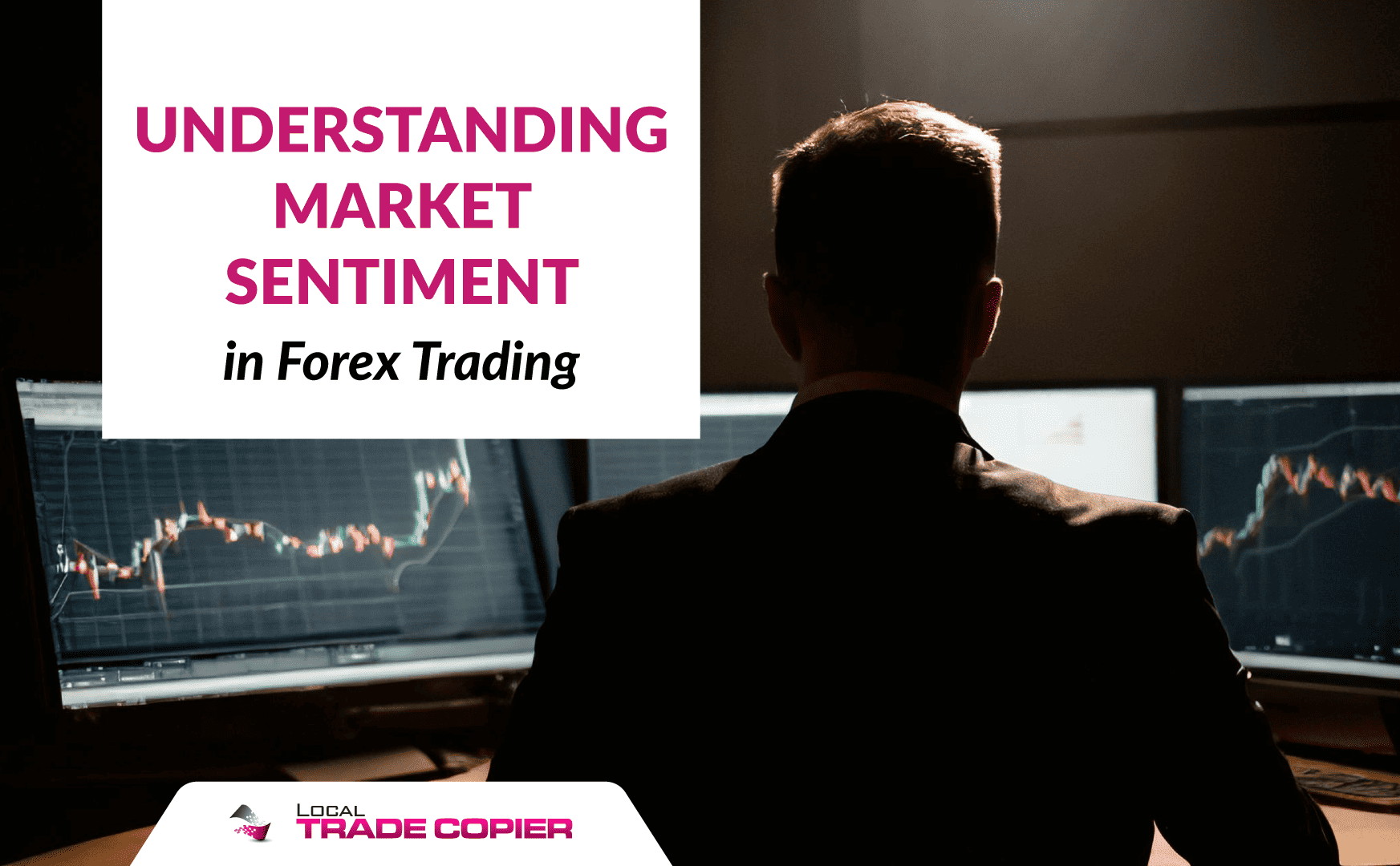
Mastering Market Sentiment Analysis for Successful FX Trades: MT4/MT5 Strategies with Trade Copier

Mastering Market Sentiment Analysis for Successful FX Trades: MT4/MT5 Strategies with Trade Copier

The world of forex trading is a dynamic and complex arena where myriad factors influence price movements. Among these factors, market sentiment stands out as a critical driver that traders keenly observe and leverage to make informed decisions. Understanding market sentiment is not merely about gauging the mood of the market; it involves a nuanced understanding of various elements that shape traders’ perceptions and behaviors.
Table of Contents
- Introduction to Market Sentiment in Forex Trading
- Factors Influencing Market Sentiment
- Types of Market Sentiment
- Tools and Indicators for Assessing Market Sentiment
- Impact of Market Sentiment on Forex Markets
- Strategies for Trading Based on Market Sentiment
- Psychology and Emotions in Understanding Market Sentiment
- Case Studies Illustrating Market Sentiment Influence
- Tips for Assessing and Responding to Market Sentiment
- The Role of Sentiment in Risk Management
- Challenges in Interpreting Market Sentiment
- Future Trends in Analyzing Market Sentiment
- Educational Resources for Understanding Market Sentiment
- Conclusion
- FAQ’s
- 1. How frequently does market sentiment change in forex trading?
- 2. Are there specific indicators that solely reflect market sentiment?
- 3. Can market sentiment override fundamental analysis in decision-making?
- 4. How can beginner traders interpret and utilize market sentiment?
- 5. Are there risks associated with solely relying on market sentiment for trading decisions?
- Related posts:
Disclaimer: This post includes affiliate links
If you click on a link and make a purchase, I may receive a commission at no extra cost to you.
Introduction to Market Sentiment in Forex Trading
Market sentiment refers to the overall feeling or attitude of traders and investors toward a particular financial market. In forex trading, it encapsulates the collective emotions and opinions of market participants regarding the direction of currency pairs. This sentiment often dictates the flow of capital and influences the demand and supply dynamics, consequently impacting currency prices.
Factors Influencing Market Sentiment
Several factors contribute to shaping market sentiment in forex trading. Economic indicators , such as GDP reports, employment data, and inflation figures, play a pivotal role. Additionally, geopolitical events , such as elections, geopolitical tensions, or trade agreements, can swiftly alter sentiment. Moreover, investor psychology, driven by emotions like fear, greed, and confidence, significantly impacts market sentiment.
Types of Market Sentiment
Market sentiment generally falls into three categories: bullish, bearish, and neutral. Bullish sentiment indicates a positive outlook, expecting prices to rise, while bearish sentiment anticipates a decline. Neutral sentiment reflects a balanced or uncertain market view, lacking a clear bias towards either bullish or bearish trends.
Tools and Indicators for Assessing Market Sentiment
Tools and Indicators for Assessing Market Sentiment encompass various instruments used by traders to gauge the prevailing mood and outlook of the market. These tools include the Commitment of Traders (COT) report, sentiment analysis tools, and technical indicators like moving averages and oscillators . They help traders interpret market sentiment, identify potential shifts, and make informed decisions in forex trading.
Impact of Market Sentiment on Forex Markets
The Impact of Market Sentiment on Forex Markets is substantial, as it directly influences currency prices and market trends. Traders’ collective emotions and opinions often lead to rapid fluctuations or prolonged movements in currency pairs. Understanding and analyzing market sentiment is crucial for identifying potential trends, managing risks , and making informed trading decisions in the forex market.
Strategies for Trading Based on Market Sentiment
Strategies for Trading Based on Market Sentiment involve various approaches used by traders to leverage the prevailing mood of the market. These strategies include contrarian approaches, where traders go against prevailing sentiment, trend-following strategies that align with market sentiment, and risk mitigation techniques. Balancing sentiment analysis with other forms of analysis is key to making informed trading decisions in forex markets.
Psychology and Emotions in Understanding Market Sentiment
Psychology and Emotions in Understanding Market Sentiment delve into the human aspect of trading, focusing on how emotions like fear, greed, and confidence influence market behavior. Recognizing and managing these emotions is crucial in accurately interpreting market sentiment. Traders who understand the psychological dynamics behind market sentiment can make more informed decisions in the forex market.
Case Studies Illustrating Market Sentiment Influence
Historical events like financial crises or geopolitical shifts often showcase how market sentiment can dramatically impact currency markets. Learning from these instances helps traders navigate future sentiment-driven scenarios.
Tips for Assessing and Responding to Market Sentiment
Tips for Assessing and Responding to Market Sentiment are essential guidelines for traders to navigate the ever-changing market dynamics. Staying informed through reliable sources, maintaining a rational approach, and cross-verifying information from multiple sources are vital. Additionally, considering various indicators and tools while analyzing sentiment helps in making well-informed decisions and responses in the forex market.
The Role of Sentiment in Risk Management
The Role of Sentiment in Risk Management is significant in the forex market. Understanding market sentiment helps traders anticipate potential risks associated with sudden shifts in market mood. Balancing sentiment analysis with fundamental analysis aids in devising effective risk mitigation strategies, allowing traders to make more informed decisions and manage risks more effectively.
Challenges in Interpreting Market Sentiment
Interpreting Market Sentiment comes with its set of Challenges in the forex arena. The volatile nature of sentiment and the potential for conflicting signals pose significant hurdles. Traders often face difficulties in accurately interpreting sentiment due to sudden shifts, diverse market participants, and the influence of external factors. Navigating these challenges requires a nuanced understanding and experience in analyzing market sentiment effectively.
Future Trends in Analyzing Market Sentiment
Future Trends in Analyzing Market Sentiment point toward technological advancements shaping the forex landscape. Innovations in sentiment analysis, particularly leveraging AI and machine learning, are poised to revolutionize how traders interpret and respond to market sentiment. These advancements promise more sophisticated and accurate tools, offering traders deeper insights into market behaviors and trends, ultimately enhancing decision-making processes in the future forex market.
Educational Resources for Understanding Market Sentiment
Educational Resources for Understanding Market Sentiment encompass a variety of avenues available for traders seeking to deepen their understanding. These resources include recommended books, specialized courses, and online forums or communities dedicated to discussing market sentiment. Engaging with these educational materials can equip traders with the knowledge and insights necessary to effectively interpret and leverage market sentiment in their forex trading endeavors.
Conclusion
Market sentiment plays a pivotal role in forex trading, influencing currency prices and market trends. Understanding and analyzing sentiment is essential for traders to make informed decisions and manage risks effectively. The dynamic nature of sentiment, coupled with its impact on market dynamics, emphasizes its significance in shaping trading strategies. As technology advances, the future holds promise for more sophisticated tools that will further refine sentiment analysis, empowering traders to navigate the forex market with greater precision and insight.
FAQ’s
1. How frequently does market sentiment change in forex trading?
Ans. Market sentiment can change rapidly, often in response to economic data releases, geopolitical events, or shifts in investor sentiment. It can vary from daily fluctuations to more prolonged trends, depending on the prevailing market conditions.
2. Are there specific indicators that solely reflect market sentiment?
Ans. While there’s no single indicator that exclusively reflects market sentiment, tools like the Commitment of Traders (COT) report, sentiment analysis tools, and certain technical indicators offer insights into prevailing sentiment.
3. Can market sentiment override fundamental analysis in decision-making?
Ans. Market sentiment and fundamental analysis both play crucial roles in trading decisions. While sentiment can sway short-term price movements, fundamental analysis provides a broader understanding of market conditions.
4. How can beginner traders interpret and utilize market sentiment?
Ans. Beginner traders can start by staying updated on economic news, monitoring sentiment indicators, and observing how market events influence sentiment.
5. Are there risks associated with solely relying on market sentiment for trading decisions?
Ans. Relying solely on market sentiment without considering other factors like fundamental analysis or risk management strategies can be risky. Market sentiment can change unexpectedly, leading to sudden market movements.
Related posts:
- 10 Forex Trading Strategies Based on Economic Indicators
- The Technology Behind The Forex Market And Why It’s Important
- How to Manage Risks with the Consumer Price Index (CPI) in Forex Trading
- How to Use Ichimoku Charts in Forex Trading
Also read:
- [Updated] 2024 Approved Pivotal Elements of Crafting Persuasive Customer Success Stories
- [Updated] In 2024, Charting a Path to YouTube Wealth CPM Analysis
- [Updated] Stay Steady with the Right Tripod Techniques for Top-Notch Video Content
- 1. Top-Ranking TubeChop Substitute for MAC & WINDOWS Users
- 1. Ultimate Guide to Downloading Films From Sockshare in Multiple Formats (MP4, MOV, AVI)
- 5 Easy Ways to Change Location on YouTube TV On Realme C55 | Dr.fone
- Access Your Learning Resources - Free Video Lectures From TopperLearning
- How Can I Catch the Regional Pokémon without Traveling On Infinix Zero 5G 2023 Turbo | Dr.fone
- In 2024, Rootjunky APK To Bypass Google FRP Lock For Oppo F25 Pro 5G
- In 2024, Thriving Despite YouTube's Rigorous Copyright Strike System
- In 2024, Tips and Tricks for Setting Up your Samsung Galaxy F15 5G Phone Pattern Lock
- Mastering the Art of Setting Bookmarks in Your FlipBook: A Comprehensive Guide
- Resolving System Failures Due to Faulty Graphics Card: Tips From YL Software Experts
- Securing Your Digital Content: Setting Passwords for FlipBook Publications via FlipBuilder
- Transform Book Experience: Read Seamlessly on Desktops & Smartphones via Page Flip eBooks | Get Started at FlipBuilder
- Troubleshooting Non-Functioning Links in Your FlipBoard Ebooks: Tips & Solutions
- Title: Mastering Market Sentiment Analysis for Successful FX Trades: MT4/MT5 Strategies with Trade Copier
- Author: James
- Created at : 2025-02-26 21:43:36
- Updated at : 2025-03-03 22:06:46
- Link: https://win-deluxe.techidaily.com/mastering-market-sentiment-analysis-for-successful-fx-trades-mt4mt5-strategies-with-trade-copier/
- License: This work is licensed under CC BY-NC-SA 4.0.